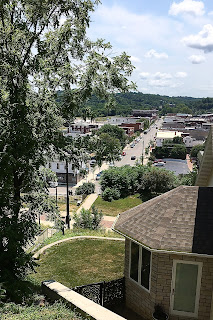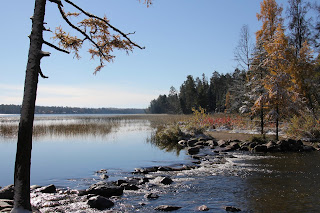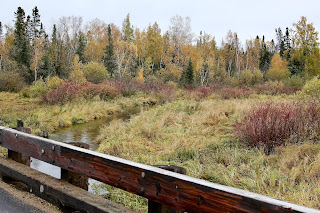
Santiago, Chile: Two days and a wake-up, that’s how long before I would fly home. I didn’t have to be at Library For The Blind until noon and I didn’t want to be underfoot at Terra Australis. So I took the black, canvas gig bag that El Peregrino traveled in, all around Patagonia, back to the store where I bought it. I struggled with my Spanish, asking the man if I could return it. I knew he wasn’t going to give me any money but I had nothing better to do. Trying to engage a native stranger would be good practice. He was adamant that he could not, would not take it. When I asked why not, he said it was worn and damaged, he refused to make a refund. I tried to tell him that someone could use it, it was too good to throw away. The man had stopped listening. My vocabulary lacked important words and I wasn’t making much sense, I knew that but kept trying. He just repeated, “No, no, no” he couldn’t give me a refund and he wouldn’t take it back. I needed to get his attention again so I waited, got eye contact and tried something different. “No quiero tu Dios maltido dinero.” I had forgotten I knew that one; “I don’t want your God damn money.” It got his attention. I knew the verb “dar”, to give and “regalo” a gift. I repeated them several times and added, “a alguien.” to someone. He got it. In a flash of insight, we became allies instead of adversaries. He took the bag and thanked me. Just enough time for pineapple empanadas from the bakery across the street, to pick up El Peregrino at Terra Australis and be at the Library on time.
I was a few minutes early but the room was full. Besides Ruth, there were seven. Two men and a teenage girl were new to me but Ruth said they were regulars. Introductions took a few minutes and I moved on to some new questions in English and Spanish. Once we had the question answered in Spanish we translated it into English. “I have one brother.” “I like to sing.” Everybody got to do a couple of “I have” and “I like” problems. Even if they already knew, it was good repetition. When I asked Ruth what she liked she surprised me. She liked Baltimore, Maryland. She had been there four years earlier; it’s where she got her dog, Lennon. Over the three days we had several good conversations after all, she was the only one who actually had some fluency. She stayed in Maryland for three months, training with her new dog, Lennon. I knew she was a big Beatles fan, did the math and made the connection. John Lennon? “Oh yes! He is my favorite. What else could I name her?” I asked what it would have been if the dog were male. She said it could have been John Lennon but as it was, Lennon worked either way. The next day I learned that her e-mail address was (sergeantpepper@).
I asked Claudia if she could tell me any of the “Jet Plane” story in English. She struggled with it, got help on tough words; soon it was a group effort, everyone getting a word in. We were going to do a different song. “La cancion para hoy” I said, “es el espacial de medianoche.” The song for today is, The Midnight Special. It took a few minutes and some help to get my story into Spanglish but they were a great audience. When a man in prison looks out his window, he can see the train station. When a train comes in the middle of the night, its light shine across the platform with all the people getting on and getting off the train. The verses are about life in prison while the chorus is about his dream of having the train’s light shine on him. For that to happen he would have to be on the platform, a free man.
None of them were familiar with the song but all liked the story. It’s simple and it repeats. “Let the midnight special, shine a light on me.” Deja que el especial medianoche, me ilumine. They got the subtle melody shift between lines and we sang all four lines of the chorus. I don’t remember how we handled the 4th line with its “Ever-loving light,” but it worked. The verses took more time but that’s where the story took us. Everyone thought it was great that Miss Lucy came so far to see the warden, to negotiate her man’s pardon. “Yonder comes Miss Lucy, piece of paper in her hand.” They listened for the chord change into the chorus and everyone came in together. “Let the midnight special, shine a light on me.” Time flies when you’re having fun and we were having fun. We agreed to do it again the next day, same time and place. I noticed, thought it glum; just in the standing up and putting on coats, the creative spark and happy spirit that had raised us up, it went away. The sweethearts sat together. I watched them smile and squeeze hands but they couldn’t see each other and it didn’t seem fair. Out the window, up the sidewalk, two of the others were feeling their way behind white canes. I put El Peregrino in his case and made my way back to Terra Australis. The suitcase I left there during my walk-about was still stored in the bathtub. I put the guitar case with it, out of sight behind the curtain and waited for Marcelo.
Our plan was to drive an hour west to the coastal town of Isla Negra, a popular tourist destination, one of those places defined by famous people who once lived there. Hannibal, Missouri with Mark Twain and Key West had Ernest Hemingway; Isla Negra had Pablo Neruda, Chile’s equivalent to Hemingway and Mark Twain. Neruda died in the 1970’s during the reign of dictator, Augusto Pinochet. They were political enemies and there is still plenty of conspiracy theory over Neruda’s untimely death. History has treated the poet-philosopher much better than the dictator. One of Neruda’s homes was in Isla Negra, now a museum and the town was a favorite hangout for college students when Marcelo was at University.
I didn’t have to wait long, Marcelo didn’t even turn off the motor. Olvia said I would love the sea shore, that it was both scenic and historic. He said I would love it too but his recollection was from spontaneous combustion, alcohol and testosterone, a decade earlier. The drive was pleasant but uneventful, talking about our college days. I was 30 years plus, ahead of him on the learning curve, he like monkeys on the tire swing at the zoo, me like patrons of the zoo, both thinking the fence was to save us from the other. It was mid afternoon, mid week, winter time on the sea shore; not a lot going on. The museum was preserved as it was when he lived there, not much emphasis on plaques or displays. I didn’t need a docent, I had Marcelo and he knew the story by heart. Isla Negra; it’s not an island as the name suggests but the Negra part is self evident. Rock outcroppings along the beach and out into the surf are gray granite with black bands of intrusive basalt that made Mother Nature the original advocate of abstract, surreal art. Blue water, white foam and red kelp all swashed ashore and back out. If it were not so cold it would have invited bare feet onto the wet sand. All the while, my amigo was caught up with nostalgia, reliving his college memories.
We had a great fish dinner at a small restaurant. They had Escudo in bottles which made me happy. I didn’t finish mine but what I drank was just right with the coarse, heavy bread, avocados, mangos and of course, the fish. It was dark when we got in the car but Marcelo still wanted to show me his favorite places like criminals returning to the scene of the crime. There was the little cove where they skinny-dipped, where his girl friend, future mother of his daughters; they slept there on the beach. We drove to a place where there were no street lights, where they rode bicycles between houses to elude the police, some things never change. At the end of the story, on our way back to Santiago he reminded me that they never got caught and he had graduated with honors.
The sisters were happy that I was happy. They had their own stories from Isla Negra, from when they were young. Pablo Neruda had been a hero for them and his little town was almost sacred as the church. I would go back to Library For The Blind the next day and after that I had no plan, just wait for the night to unfold. It would be my last full day on the continent.




















